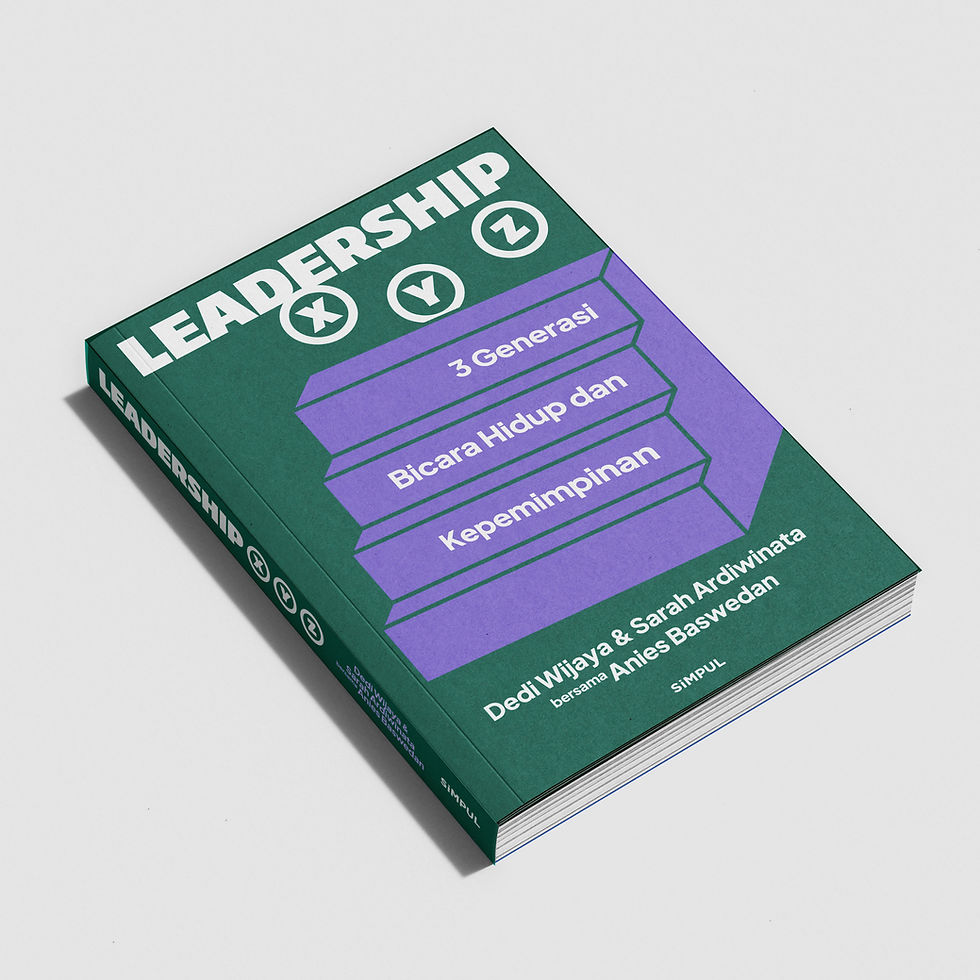How Psychology Trained Me for Creative Chaos
- Simpul Writers
- Aug 7, 2025
- 4 min read
I didn't plan to work in the creative industry — not with a degree in Psychology.
As undergraduates, we often view our future through a tunnel-focused lens, imagining a narrow path of possibilities after graduation. As psychology students, we often imagined only three futures: therapist, researcher, or corporate HR. And really, there is nothing wrong with these career paths. At that time, I chose corporate HR, which I thought was logical, stable, and promising. I mapped my steps toward that path… until one internship threw me off course.

I chose an internship at a podcast company over a more stable HR position in a fintech company. It seemed like a more fun and dynamic choice at the time: I got to research, learn new things, meet various people, and get paid for it. That one internship, along with volunteering and part-time writing gigs, somehow led to eight years in the creative industry — doing nothing remotely close to my degree.
The creative industry, I've learned, moves fast. Every day brings something new, with far less structure than Psychology ever offered. There's rarely a fixed playbook. While psychology includes an element of subjectivity, it still relies on structures as reflected in theories, frameworks, and schools of thought. In creative work, ideas are defended through instinct, ego, experience, and wildly different perspectives. There's no single 'right' answer.
So I had to equip myself the hard way, which involved stumbling, adapting, and figuring things out on the go. Most of the time, doubt and self-deprecation became my initial reaction. With every writing submission, I wondered, What do I know about creating good content? For every creative concept I developed, I thought, Does this idea even make sense? The road hasn't been easy.
But, surprisingly, I managed to survive and even thrive in this career, despite not having a degree or learning background in related fields. And while the learning curve was steep, I began to notice that Psychology left me with tools that, although not always obvious, are incredibly useful. These tools have helped me make sense of the journey and grow.
First, bringing structure into the chaos. In creative environments, ideas often fly fast, timelines shift, and clarity is rare. But my background in psychology trained me to find (and build) frameworks. Whether it's breaking down a client brief, outlining a story arc, or structuring a brand's messaging system, I naturally reach for patterns, categories, and logic. I ask myself each time: What's the goal? What are the issues to be solved? What's the bigger pattern here?
Fun fact: When I decided to pursue this career further, my parents were perplexed. I've always been a logic-first person, so the idea of me going into creative was bewildering. But over time, I learned that I'm not 'rigid' like my parents thought — I'm organized in the chaos. That structure becomes a stabilizer for me, and even my colleagues, when we become lost in the creative fog.
Second, tuning into the subtext. Psychology trained me to listen beyond words. I try to notice the gaps between intent and expression — and often, that's where the real insight lives. When feedback goes, 'It just doesn't feel right,' I've learned to pause and ask myself: What might they be reacting to underneath the surface? In these analyses, I don't always get it right, but tuning into that subtext often helps me uncover what's missing. It's about listening a little deeper in the pursuit of understanding, and hoping the message lands where it matters.
Last, exercising empathy. Empathy — I've learned — isn't just a personality trait, but a precious skill. It's the quiet question behind every project: How will this make someone feel? Psychology taught me to be curious about people's inner worlds. It taught me to ask: What does the audience feel at this moment? What do they want, or even need, to hear? This curiosity has helped me gain deeper insights into shaping stories and messages that may feel personal, and (hopefully) resonate with those on the receiving end.
Sometimes I still feel like an impostor in brainstorm meetings filled with design grads, former journalists, and communication experts. But then, now and then, someone quietly nods at an idea I shared. In those rare moments when something I say resonates, I realize that maybe this unfamiliar path has shaped a voice that has a different kind of value.
I used to think psychology was only for therapy rooms. Now, I see it everywhere in my line of work. In navigating the mess and speed. In making meaning out of each ambiguous brief. In understanding my audience and creating stories for them. In dealing with feedback and collaborating with people with different tastes and backgrounds.
A non-linear career path isn't a dead end. After all, life is full of detours. It may take extra effort to improve and handle the curveballs, but it also offers unexpected lessons and depth. Even though I still struggle with my lack of formal knowledge compared to colleagues with more relevant degrees, I've found beauty and growth in those confusing stages of adjustment.
It turns out that understanding people is the ultimate creative tool. Creative work needs people who understand people. After all, Psychology is the science of people. And in the creative industry, we create for people.
At first, it may seem like I chose chaos.
But along the way, I learned how to read it.
-KS



Comments